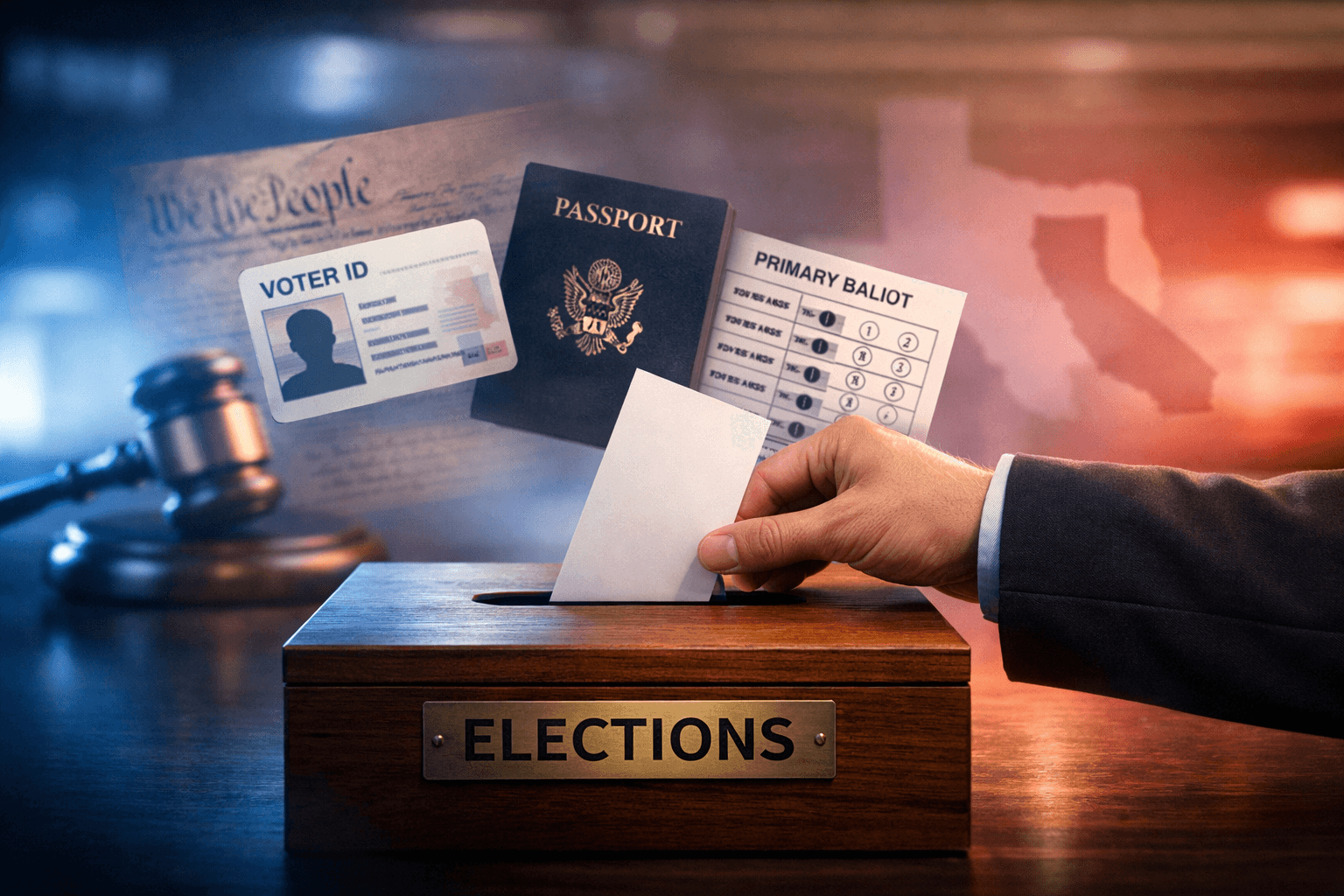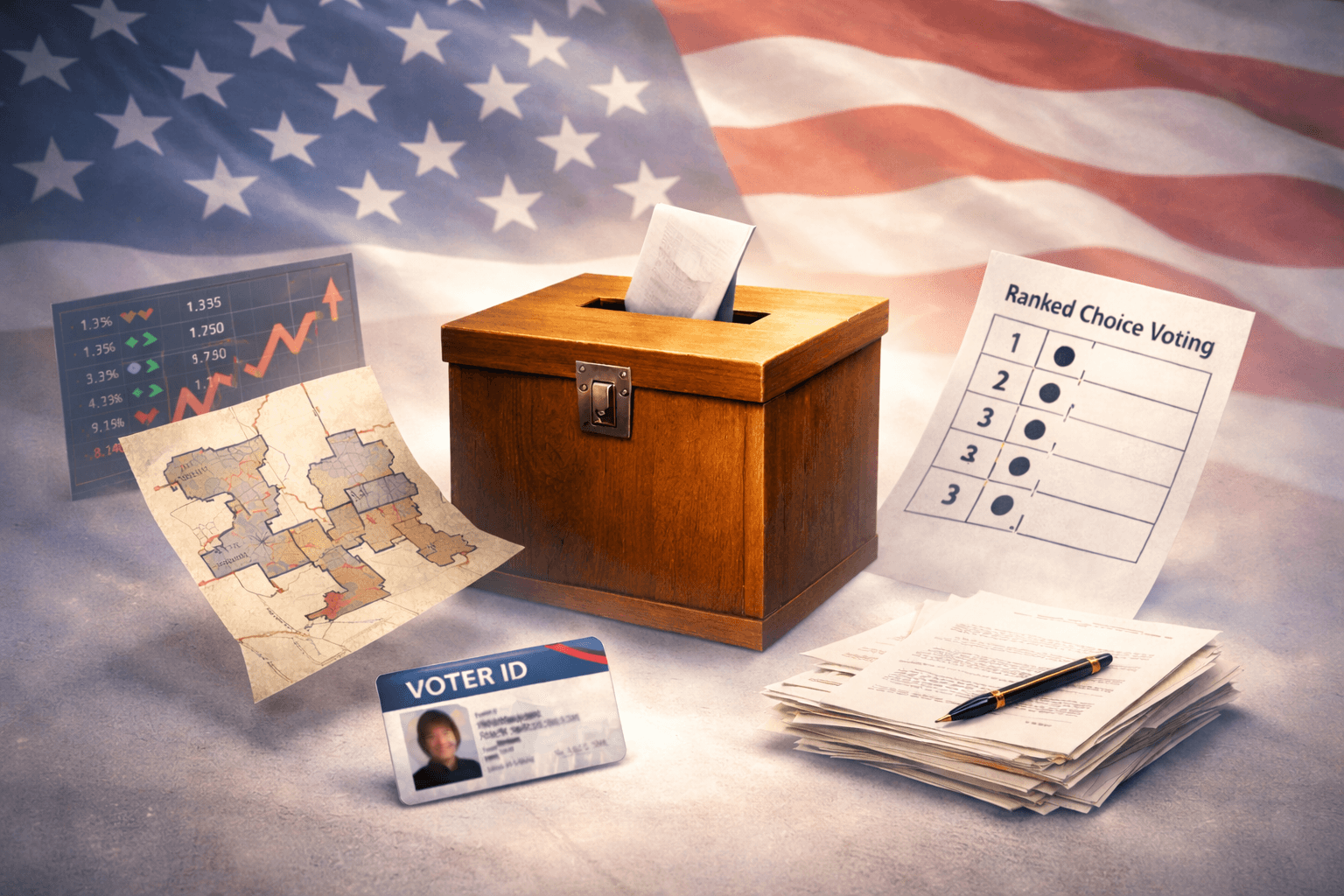Why Are Democrats in DC Failing to Implement an Initiative Passed by 73% of Voters?

WASHINGTON, DC - Back in November, DC voters overwhelmingly approved Initiative 83, a measure that called for semi-open primaries and ranked choice voting (RCV) in all city elections. The problem – the DC City Council has yet to fully fund it.
To clarify, about 73% of voters said “Yes” to ranked choice voting and giving the city’s 84,000 independent voters a say in taxpayer-funded primary elections, but so far, the City Council has only approved funding for one of those reforms.
Council members voted 8-4 Monday to fund RCV in city elections starting with the June 2026 primaries. However, the Council stopped short of funding the initiative’s open primaries component.
Lisa D.T. Rice, proposer of Initiative 83 and Founding CEO of Grow Democracy DC, celebrated the partial victory in a statement:
The journey to this historic day has been long, but well worth the effort to give DC voters more voice and more choice in our elections. While the entirety of Initiative 83 wasn’t funded today, we celebrate these eight Councilmembers' commitment to expanding democracy in the District, the driving force behind Initiative 83.”
She added that she is hopeful Council members will secure funding for open primaries when they conduct the second and final budget vote on July 28. The funding allocated for RCV rollout includes money for voter education and election staff training.
Why the Delay? Resistance from Democratic Leadership
Funding Initiative 83 is a subject of controversy in the nation’s capital as it has faced resistance from the Democratic Party. Its leaders and representatives in city government have used every excuse they can think of to deny voters their reforms.
For example, Mayor Muriel Bowser, who opposed Initiative 83 during the campaign and characterized RCV as “a very complicated election system,” did not include funding for the measure’s implementation in her initial Fiscal Year 2026 budget proposal.
Then, during a Ward 8 candidate forum on June 2, some of the candidates vying for a seat on the City Council said DC should delay implementation, including Mike Austin, who claimed there was some “confusion in how it was agendized and presented to the community.”
He also accused the Initiative 83 campaign of fraud – referring to an administrative order from the DC Board of Elections on April 14 that 4 members of Make All Votes Count DC be fined $37,000 for altering 125 voter addresses on petitions submitted for the initiative.
This became known as the “White-out controversy.” It is worth noting that Make All Votes Count submitted more than 40,000 signatures and needed 22,500 signatures to qualify for the ballot, including 5% of registered voters in each of DC’s 8 wards.
At the same forum, candidate Salim Adofo rejected the “voter confusion” narrative on the initiative – especially given the massive support for it on Election Day.
“I would support [Initiative 83 implementation], especially because over 73% of the city wanted to support it, which tells me that over 73% of the city can’t be unaware or not knowledgeable of something,” Adofo said.
Councilmember Anita Bonds, who chairs the City Council's elections committee, questioned the timing and completeness of implementing citizen-led ballot initiatives, citing the need for more debate and mentioning ongoing litigation.
This ongoing litigation was brought by the DC Democratic Party, which began a legal crusade against election reform even before Initiative 63 qualified for the ballot and has since filed multiple lawsuits to deny voters popular electoral changes.
The whole situation escalated to the point that the Washington Post published an editorial titled, “DC Democrats tarnish themselves by resisting ranked choice voting.”
Who Is Defending Democracy?
The City Council reconvenes on July 28 to finalize the FY 2026 budget. This vote represents the last opportunity to secure funding for the open primaries portion of Initiative 83, which would affect just 0.007% of the city’s multi‑billion-dollar budget.
Cost is not the issue. The issue is whether the City Council will fully honor the will of voters or cherry pick the reform they can live with at the expense of equal voting rights for independent voters.
DC is a one-party city. There is not a single Republican on the 13-member City Council and the only reason why there are 2 non-Democrats is because of the Home Rule Act, which states that a maximum of 3 out of the 4 at-large seats may be held by the majority party.
This means city elections are effectively decided in closed partisan primaries, giving the Democratic Party the most control over electoral outcomes while the city's independent voters are denied a meaningful say in elections.
Note: There are more than 3x the number of registered independent voters in DC than registered Republicans.
Supporters of Initiative 83 are encouraging active civic engagement ahead of the July 28 Council vote, mobilizing independent voters and community groups to press councilmembers to honor the results of the November election.
 Shawn Griffiths
Shawn Griffiths






